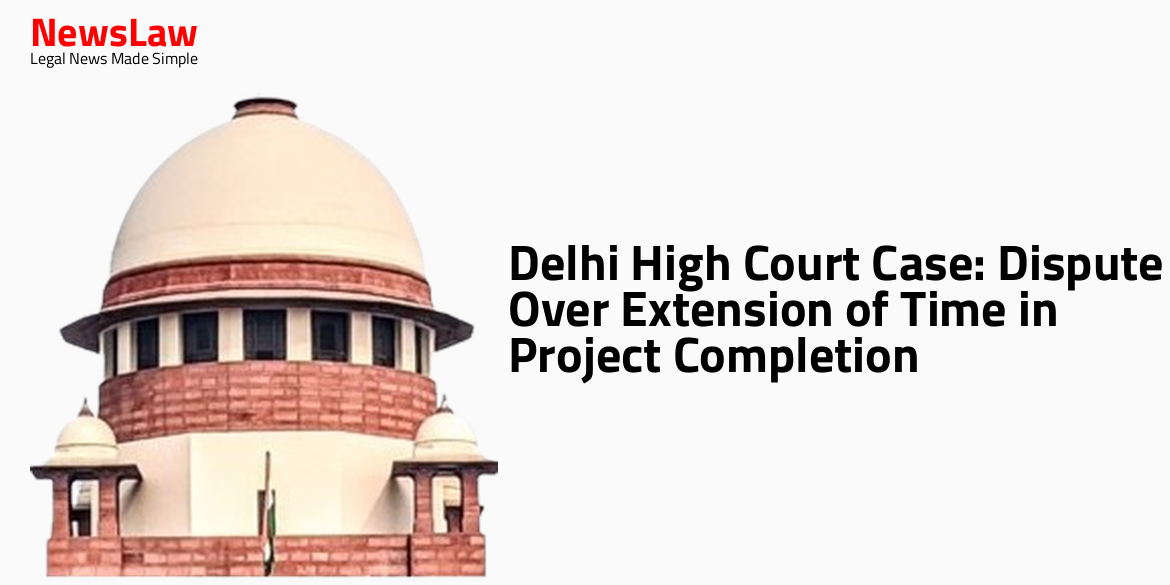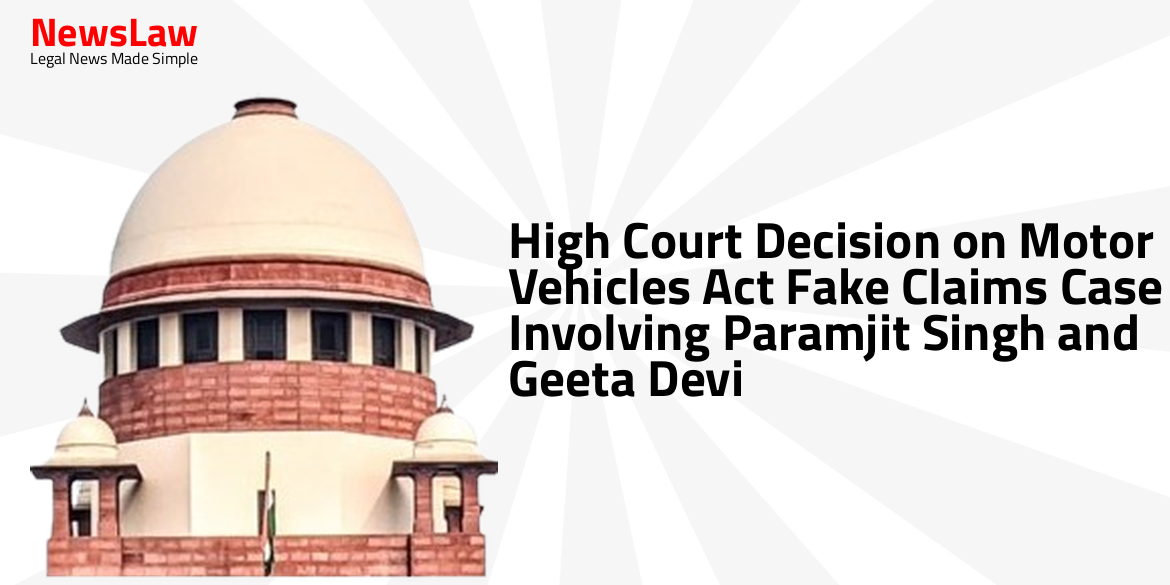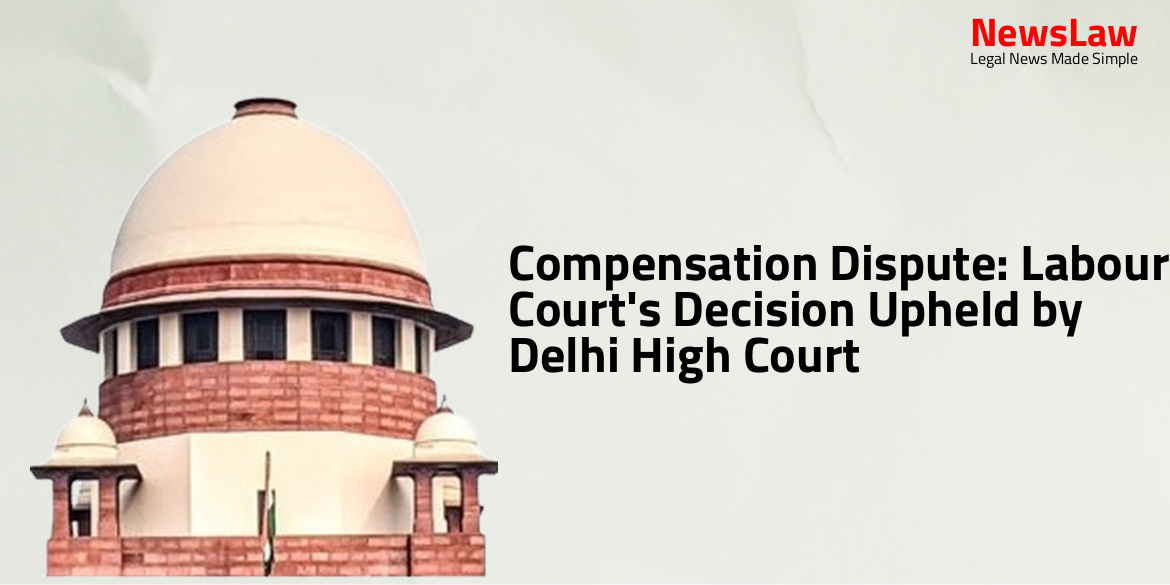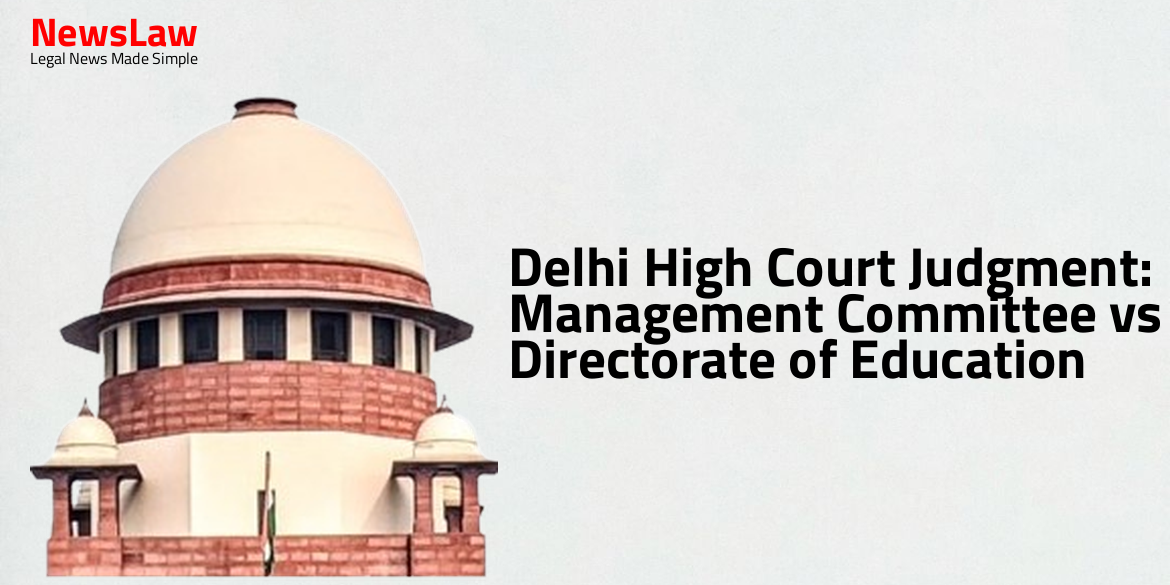In a recent judgment by the Delhi High Court, a case involving a dispute over the extension of time for project completion was thoroughly examined. The respondent, North Delhi Municipal Corporation, and the petitioner engaged in a legal battle concerning the provisional extension granted during the project timeline. This case highlights the complexities of contract interpretation and the role of the Arbitral Tribunal in resolving such disputes.
Facts
- MCD granted extensions of time for completing the Project, reserving the right to impose liquidated damages.
- North Delhi Municipal Corporation filed an application claiming entitlement to levy liquidated damages as per Clause 2 of the Agreement.
- The Project was completed during the extended period granted by MCD, albeit provisionally.
- MCD is seeking damages due to delays in Project execution.
- MCD did not have the option to issue provisional extension of time for the Project as per the Agreement.
- The Arbitral Tribunal ruled against MCD on this issue in favour of the respondent.
- The decision was made in a definitive manner, supporting the respondent’s position.
Issue
- The Arbitral Tribunal framed several issues, including Issue No.3 specifically addressing the dispute regarding the grant of provisional extension of time for contract completion.
- Issue No.3 asks whether the Respondent/PMC’s action in providing the provisional extension complies with the terms of the agreement.
- The impugned partial award conclusively settles and decides the matter relating to Issue No.3.
- A key point of contention between the parties is whether the provisional extension granted aligns with the contractual terms agreed upon.
Arguments
- ARG_PETITIONER claims that the Single Judge exceeded jurisdiction in directing the Arbitral Tribunal to decide Issue no.5 only after determining completion status of the Project.
- MCD argues that it is common trade practice to grant provisional EoT pending formal request for EoT, challenging the Tribunal’s conclusion.
- MCD raises concerns about the foreclosing of its claim for liquidated damages in the case.
- The Single Judge supported the Arbitral Tribunal’s decision on Issue no.3, limiting MCD’s options regarding EoT extensions.
- The Single Judge opined that Issue no.3 does not resolve the dispute on MCD’s right to levy liquidated damages, distinct from Issue no.5.
- The Single Judge acknowledged the independence of Issues no.3 and 5, allowing the Tribunal to address Issue no.5 post determination of completion status.
- Mr. Arun Varma, the learned senior counsel for the respondent, countered the submissions made by the opposing party.
- He referred to paragraph 27 of the impugned judgment and argued that the Arbitral Tribunal had clarified the independence of Issue nos. 3 and 5.
- The Arbitral Tribunal mentioned that although there could be some overlap, these issues required separate adjudication.
Analysis
- The challenge raised by MCD is confined to determining if the award is in contravention of the fundamental policy of Indian law.
- The Arbitral Tribunal’s decision on the construction of relevant Clauses is considered plausible but not a ground to set aside the award.
- MCD failed to establish the ability of the Respondent to grant a provisional extension of time under the contract.
- Requests for rescheduling of milestones and extensions of time must be in writing within fourteen days of the delay event.
- The challenge is based on interpreting contractual clauses, not falling under Section 34(2)(b)(ii) of the A&C Act.
- The impugned award could not be set aside on the ground of patent illegality even if available.
- The scope of public policy of India has been explained, and the impugned award does not offend the basic policy underlying Indian law.
- Disputes regarding contract interpretation fall under Arbitral Tribunal jurisdiction unless the interpretation is implausible.
- The Arbitral Tribunal’s decision on the interpretation of terms for Issue No.3 may have implications on other issues.
- The impugned award was in an ‘international commercial arbitration’ and the EoT on a provisional basis was not contemplated under the terms of the Agreement.
- The Contractor must notify the Engineer-in-Charge in writing of any event causing delay
- The Contractor is obligated to prevent or rectify the delay to the satisfaction of the Engineer-in-Charge
- Failure to commence work may lead to forfeiture of earnest money and performance guarantee
- The Contractor and Engineer-in-Charge may agree to amend forecasted dates of work commencement and completion
- For works exceeding one month, milestones must be completed to ensure good progress
- Various reasons for delay provided, including force majeure, bad weather, and civil disturbances
- Criteria for award conflict with public policy of India clarified in Explanation 1 and 2
- Supreme Court observed that matters related to construction of a contract fall under the jurisdiction of the Arbitral Tribunal.
- These matters are not subject to review on merits unless the interpretation is impossible.
- The Arbitral Tribunal has the authority to interpret the contract in such cases.
- The observations made by the Single Judge will not pre-determine the issues pending before the Arbitral Tribunal.
- The Arbitral Tribunal will examine all disputes unbiased by any previous observations by the Single Judge or the Court.
- The Arbitral Tribunal will independently consider and decide on the pending issues before it.
Decision
- This part of the judgement evaluates the appeal and determines its merit.
- The appeal is found to be unmerited and is subsequently dismissed.
Case Title: MUNICIPAL CORPORATION OF DELHI (ERSTWHILE NORTH DELHI MUNICIPAL CORPORATION) Vs. M/S IJM CORPORATION BERHAD (2024:DHC:3842-DB)
Case Number: FAO(OS) (COMM)-200/2022



